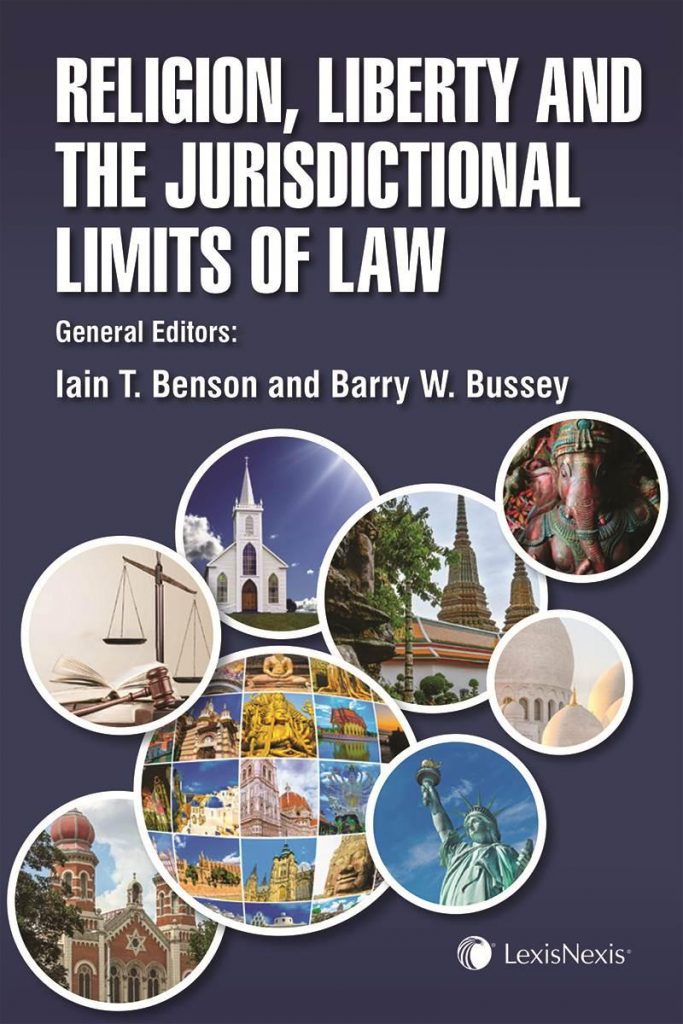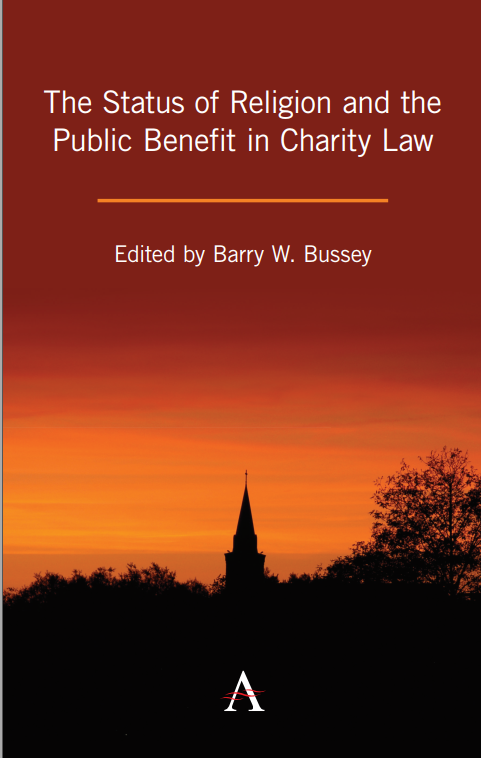For more than three decades, CCCC has been involved in coordinating, organizing, and leading legal responses to issues of significance to CCCC members, the broader Christian community, and the charitable sector as a whole. This work is done through the CCCC Trust Fund for Legal Defence (the Fund).
But advocacy is more than just court cases and CCCC has been advocating for virtually our entire existence! In a 1975 report to the CCCC Board, an important “first” was recorded: CCCC made its first representation to the federal government regarding changes in the regulation of charities.
CCCC is intentional about representing Christian charities in the public sphere. We hold seats on key legal and policy committees and participate in one-time consultations and conferences. Being involved and informed on the latest developments allows CCCC to promote policies that reflect the best interests of our members.
Sector Representation
Our 1975 representation was indeed just the first of many advocacy opportunities for CCCC. Here is a sampling of CCCC out-of-court advocacy efforts.

CRA Technical Issues Working Group
CCCC has the opportunity to participate in Canada Revenue Agency’s (CRA) Technical Issues Working Group which advises the CRA on “issues related to the regulation of registered charities.” It is a forum to “discuss trends and technical issues in the charitable sector” and has traditionally met twice per year. With a transition to virtual meetings in 2020, consultation meetings have taken place more frequently.
Issue-Based Advocacy
Representation is sometimes prompted by particular political, regulatory, or policy issues. For example, CCCC:
- Actively supported Bill S-216 which called for changes to the “direction and control” regime in the Income Tax Act;
- Endorsed the Canada Cares proposal for a 1:1 federal donation matching fund in our 2021 Federal Pre-Budget Consultation submission;
- Expressed concern about the impact on small charities of changes to financial reporting standards;
- Made submissions to CRA as part of its consultation on political activities;
- Urged governments to consider the unique role of places of worship during times of crisis;
- Highlighted concerns about potentially broad and vague criminal law that could capture non-criminal religious practices;
- Collaborated with parallel organizations to provide an explanation of Bill C-4, which criminalizes conversion therapy
- Participated in disbursement quota consultations;
- Participated in ten multi-day consultations with the Charities Directorate to explore issues related to topics such as Advancement of Religion, Control and Direction, Political Activity, Books and Records, and the T3010 redesign.
- Is working to ensure charitable status is not politicized
- December 2019 mandate letters from the Prime Minister raised concerns that charitable status was becoming a matter of politics. This concern is shared by others in the charitable sector, and CCCC has written multiple letters, met with parallel organizations, prepared sample letters for concerned members, and made ourselves available for conversations and consultation (see Federal Challenges to Charitable Status).
- Mobilized in response to the 2018 Canada Summer Jobs Attestation
- The 2018 grant application required applicants to agree with a particular moral position taken by the government. It largely impacted faith-based organizations. In response, CCCC quickly mobilized, writing an open letter, participating in an interfaith news conference, writing an op-ed, and meeting with a cabinet Minister. Ultimately, the 2018 Attestation was revised.
- Emphasized the role of religious charities to the Special Senate Committee on the Charitable Sector
- Also in 2018, CEO John Pellowe made a written submission to the Special Senate Committee on the Charitable Sector entitled, “The Impact of the ‘Advancing Religion’ Charitable Sub-Sector in Canada.” A few months later, in March 2019, he was able to make an in-person presentation (at 11:12:40) to the Committee, highlighting key elements of the paper.
Research & Writing
CCCC has also supported and encouraged academic work, including the research, writing and publication of books and journal articles by our legal staff. A few of the many publications are:
- Religion, Liberty and the Jurisdictional Limits of Law (Eds. Iain T. Benson and Barry W. Bussey) 2017

- The Status of Religion and the Public Benefit in Charity Law (Ed. Barry W. Bussey) 2020

- The Inherence of Human Dignity: Foundations of Human Dignity, Vols 1 &2 (Eds. Angus J.L. Menuge & Barry W. Bussey), 2021
- “Blazing the Path: Freedom of Conscience as the Prototypical Right” (Supreme Court Law Review 98, 2020)
- “The Canada Summer Jobs Debate and the Democratic Decline” (Supreme Court Law Review, 2019)
- “Religious Equality: Restoring Section 15’s Hollowed Ground” (Supreme Court Law Review, 2019)
Legal Advocacy
In 1984, CCCC established its Trust Fund for Legal Defence (the Fund) to fund its coordination and organization of legal responses to issues initiated by governments on behalf of CCCC members and the Christian community as a whole.
CCCC leadership understood that court decisions impact more than just the parties involved. Decisions set precedents, and precedents act like a rock thrown into a pond… the ripples of a win or a loss in one case can spread far and wide.
CCCC felt strongly that charities facing significant legal challenges should be supported, to the benefit of the broader community.
Although CCCC has administered some initiatives on its own, many have been undertaken in cooperation with other national bodies, such as Christian Camping International, the Evangelical Fellowship of Canada and the Interdenominational Foreign Mission Association. Interventions, that is, participating in court cases as a friend of the court, but not as a main party – have also become a significant part of CCCC legal work.
Cases & Issues
What are some of the issues and cases? Here’s a sampling:
Clergy Residence Deduction
In the mid-1990s, re-assessments by Revenue Canada of clergy residence deduction, which had occurred sporadically since the mid 1980’s, began to occur at an ever-increasing rate. Thousands of ministry workers were disallowed their clergy residence deductions (CRD), with some for more than 10 years. This prompted the biggest legal challenge that CCCC has ever coordinated through the Fund.
A series of cases were heard by the Tax Court of Canada in the spring, summer and fall of 1998. They all dealt with the proper interpretation of paragraph 8(1)(c) of the Income Tax Act. As one decision summarized it, that section “grants a deduction in computing income in respect of the residence of members of the clergy, ministers and members of religious orders” (Austin v The Queen, 1999 CanLII 453).
In court, lawyers argued that the term “religious order” must give faith communities freedom to follow their own traditions in recognizing their spiritual leaders. The Tax Court agreed. It held that it was inappropriate for CRA officials to make determinations based on one faith community’s template for clergy and apply it to other faith communities. The definition of a religious order was appropriately broadened to include mission agencies and ministries from other faith communities.
CRA did not appeal these decisions (see, for example, Alemu v The Queen, Koop v The Queen), so CCCC’s hard-fought wins in the Tax Court meant increased clarity for all parties about how CRD eligibility is to be determined.
As a result of this court challenge, CRA consulted with CCCC on the wording and then issued a revised Interpretation Bulletin (IT 141R) to further clarify CRD eligibility, and the Income Tax Act was amended to bring further clarity about eligibility requirements.
Sidenote! As part of the CRD court cases, CCCC sought and was granted, access to information for any material related to Canada Revenue Agency’s (at the time Revenue Canada) interpretation of the term “religious order” in s 8(1)(c) ITA (see Canadian Council of Christian Charities v. Canada (Minister of Finance), [1999] 4 F.C. 245). Courts still regularly rely on this decision when weighing access to information requests!

Religious Hiring
In the early 1990s, CCCC was involved in a religious hiring case before the Human Rights Tribunal in Manitoba. The issue in that matter was the ability of an organization to hire on the basis of religious conviction.
In Schroen, the former employee held a different set of religious beliefs where the gulf between them “deep and wide” and one with “sharp divisions.” The Tribunal held that requiring an accounting clerk to adopt the organization’s statement of faith was reasonable and necessary to assure the College could achieve its religious objects.
Any type of special interest organization -religious, philanthropic, cultural, etc. – must have the freedom to hire in accordance with its particular purposes and needs, including specific beliefs in the context of religious organizations.
Private School Donations

The mid-1990s was a busy time for CCCC! Around that same time, the Charities Division of Revenue Canada began a national program to audit every independent school in Canada. The audits resulted in many challenges and re-assessments of gift by parents to schools where they had children in attendance. Ultimately, this resulted in a successful appeal to the Tax Court of Canada (TCC), Woolner v Canada, [1997] TCJ No 1395.
The TCC held that the payments made for religious training were not tuition education payments but payments made to demonstrate and describe the Mennonite faith and life. As such, the donations over and above the ‘secular’ tuition amount were charitable donations.
As a result of the Woolner decision, thousands of charitable gift credits were re-assessed and granted by Revenue Canada.
GST Assessments

Still in the late 1990s, CCCC spearheaded several appeals to the Tax Court relating to various GST issues, including Camp Kahquah Corp v The Queen, 1998 CanLII 552 (TCC). The issue was whether a camper’s fee falls within a GST exemption for services rendered by a charity as a mixed supply?
Taxable supplies are subject to GST. A taxable supply is made in the course of a commercial activity. A commercial activity is a business or trade. Except for listed items, charities that supply personal property or services are exempt. One of those listed items is “a service involving […] supervision or instruction in any recreational or athletic activity.”
Government lawyers argued that the camper fee charged by Camp Kahquah was a fee in respect of services “involving” (interpreted by CCRA as “including”) supervision or instruction in any recreational or athletic activity and therefore such services were included in the exception to the general exemption for all supplies made by charities.
CCCC’s appeal successfully argued that the word “involving” could not be interpreted as “including” by pointing to the French version of the statute – the entire supply had to be supervision or instruction in any recreational or athletic activity to be taxable. It couldn’t be combined with other supplies for this purpose.
The government appealed the Camp Kahquah decision to the Federal Court of Appeal but withdrew the appeal shortly before the hearing.

Note! A few years later, in Camp Mini-Yo-We Inc. v Canada, 2006 FCA 413, the Federal Court of Appeal disagreed, finding that “it is not the purpose but the nature of the supply that is examined.” In the FCA’s view, the fact that the camps involved supervision or instruction in the context of recreational or athletic activities was “enough to remove it from the general exemption” for charities (para 33).
Following this reversal by the court, CCCC met with CRA officials and the outcome was a fair approach to audits and re-assessments of camps that operated in good faith based on the Camp Kahquah decision. They were not penalized or re-assessed so long as they began to charge and remit GST as per the Mini-Yo-We decision.
GST Exemptions on Services Provided Outside Canada
When is a charity entitled to a 100% rebate of GST paid in respect of property or services received by the charity and exported for charitable purposes? That was the issue in Greater Europe Mission (Canada) v Canada.
The charity claimed it was entitled to a 100% rebate because it is essentially impossible to apply the Excise Tax Act requirement that a service be exported. The plain meaning of the word “export” is to send an article or commodity from one country to another in return for goods, money or service. A service itself cannot therefore be exported within the plain meaning. The object of the Excise Tax Act requirement must then be to tax consumption within Canada. The Mission’s service were therefore subject to the 100% rebate.
The Tax Court disagreed. While the Tax Court acknowledged that the relevant section of the Excise Tax Act only applies to very narrow, limited circumstances. But because it can be applied, it is not meaningless and the Tax Court did not have to consider the underlying object of the Act.
An appeal to the Federal Court of Appeal was dismissed, and the Supreme Court of Canada did not grant leave to (allow an) appeal.
See Greater Europe Mission (Canada) v Canada, [1996] GSTC 79 (Tax Court of Canada); (1999), 93 ACWS (3d) 265 (Federal Court of Appeal); [2000] SCCA no. 25 (Supreme Court of Canada).

Employment Insurance Exemptions for Overseas Missionaries
Do overseas missionaries have to pay employment insurance? That was the issue in SIM Canada v Canada (Minister of National Revenue), [1986] TCJ No 1133 (Tax Court of Canada).
If a person’s employment falls within certain definitions, that employment is insurable, which means the employment insurance premiums must be paid. Part of the definition of insurable employment is when a person “normally resides in Canada.” The meaning of this phrase would determine whether overseas missionaries were exempt from employment insurance premiums.
Ultimately the Tax Court held that the Unemployment Insurance Act and regulations “stand alone in their failure to extend benefits” to people outside Canada, “or who specifically are missionaries.” Other legislation (e.g. old age security regulations, Canada Pension Plan) specifically identify people who live abroad, whereas the Unemployment Insurance Act is silent. The intention of the unemployment insurance legislation is therefore to exclude the benefits from people who aren’t resident.
The Minister appealed the decision to the Federal Court of Appeal (FCA), Canada (Deputy Attorney General) v SIM Canada, (1988), 10 ACWS (3d) 100. In a four-paragraph decision, the FCA agreed with the Tax Court and dismissed the appeal.
Membership in Religious Associations

In two recent Supreme Court of Canada (SCC) cases, Ethiopian Orthodox Tewahedo Church of Canada St. Mary Cathedral v. Aga, 2021 SCC 22 and Highwood Congregation of Jehovah’s Witnesses (Judicial Committee) v Wall, 2018 SCC 26 (May 31, 2018), the SCC dealt with the question of membership in voluntary religious associations and whether/when courts should interfere in that decision-making process.
In Wall, Mr. Wall argued that the Highwood Congregation shouldn’t have removed him from membership – his real estate business suffered because of it and the court has jurisdiction to review the Highwood Congregation’s decision. Similarly, in Aga, former Church members asked the court to review the Church’s decision to suspend their membership arising from an internal church controversy.
CCCC intervened in both cases. Why? Membership in religious communities is voluntary, and courts are not competent to deal with religious disputes. These two overarching themes: public versus private, and court competence, were CCCC’s focus in Wall.
In Aga, there was an interesting wrinkle that dealt with charitable donations. The Ontario Court of Appeal decision commented that a civil contract had been created between the former members and the Church, in part because the members committed to making donations. CCCC was extremely concerned about the implications of this reasoning for all charities, including churches.
In both decisions, the SCC affirmed that voluntary, religious associations are free to determine their membership requirements and disciplinary process without court oversight or interference. In Aga, the SCC did not find any evidence of a contract between the former members and the church and it did not have to evaluate the nature of any donations made (summary of Wall; summary of Aga).
These were excellent outcomes for voluntary associations generally and for churches specifically.
Education and Religious Freedom: Loyola
Can a Catholic high school teach religion, including Catholicism, from a Catholic perspective? That is the essence of the issue in the Supreme Court of Canada decision in Loyola High School v. Quebec (Attorney General), 2015 SCC 12, a court case in which CCCC intervened.
The Quebec government required Loyola, a private Jesuit high school in Montreal, to teach the government’s Ethics and Religious Culture (ERC) course. Loyola’s mandate was to teach and embody Roman Catholic beliefs and faith. The school did not object to the ERC goals or competencies (e.g. understanding world religions), but it did object to the ERC’s restrictions against the school teaching from its religious perspective, against its teachers sharing their religious or ethical viewpoints, and against teaching that the Christian understanding of God is true. It therefore sought an exemption and the right to use its own curriculum. The government denied Loyola’s request and the court challenge began.
As a membership organization of over 3,200 Christian charities, CCCC understands religious freedom to be integral for religious organizations to pursue their ministries of service. In light of this overarching perspective, our intervention at the Supreme Court of Canada (SCC) focused on five key issues:
- Highlight the importance of a Christian identity in carrying out (or putting into practice) their faith through service
- Reinforce the historical importance of religious freedom for both individuals and institutions
- Encourage the development of the law regarding institutional religious freedom
- Identify potential consequences for institutions if they are denied religious freedom
- Educate the courts and the public about the important role of Christian charities
Loyola was largely successful in its appeal! The court agreed that religious freedom has “communal aspects”: it has a “socially embedded nature … [with] deep linkages between this belief and its manifestation through communal institutions.” In this case Loyola’s religious freedom was infringed; however, the specific question about whether corporations enjoy religious freedom in their own right was, in the majority’s view, not necessary to answer.
As for what Loyola could or couldn’t teach, the majority sent its request for an exemption back to the Quebec government with clear instructions that Loyola could be expected to teach other religions in a “neutral” way but at the same time it was not required to “shed” its own beliefs. Quebec needed to take a more balanced approach in recognizing Loyola’s Charter-protected freedom.
Education and Religious Freedom: TWU

Beginning in 2015, CCCC was involved in a series of court challenges in both Nova Scotia and British Columbia relating to Trinity Western University’s (TWU) proposed law school. The law school was initially approved by the Federation of Law Societies. It is the national governing body for the provincial law societies, which regulate the legal profession. However, several provincial law societies objected to some of TWU’s religious beliefs and took positions that they would not recognize TWU’s law school or its law students. This led to a series of court challenges: Nova Scotia, British Columbia, and Ontario. CCCC was not granted intervener status in the Ontario cases.
The British Columbia Court of Appeal and Ontario Court of Appeal decisions were heard by the Supreme Court of Canada (SCC) in 2017; the decisions were released in 2018.
CCCC’s interventions focused on how the court decision would impact the broader religious institutional context. Religious communities are diverse and their constitutional freedom to decide for themselves their own internal organizational rules must be upheld. The Charter requires that institutional diversity, a plurality of voices and beliefs, and valuing private religious institutions be protected and preserved as part of the Canadian cultural mosaic. As Justice Campbell explained, “[t]he Charter is not a blueprint for moral conformity. Its purpose is to protect the citizen from the power of the state, not to enforce compliance by citizens or private institutions with the moral judgments of the state” (Trinity Western University v. Nova Scotia Barristers’ Society, 2015 NSSC 25 para 10).
Ultimately, in a 7-2 decision, the SCC ruled against TWU. The majority held that it was reasonable to deny TWU’s law school accreditation. Law societies’ objective to uphold and protect the public interest in the administration of justice means it was reasonable for them to conclude that promoting equality with the legal profession was impeded by the existence of a private law school with religiously-informed community commitments.
There is so much more to the SCC decisions – If you really want to dive deep you can read the actual decisions here (Law Society of British Columbia v. Trinity Western University, 2018 SCC 32; Trinity Western University v. Law Society of Upper Canada, 2018 SCC 33) or you can read our TWU blog post series (written by our Director of Legal Affairs at that time, Barry Bussey).


